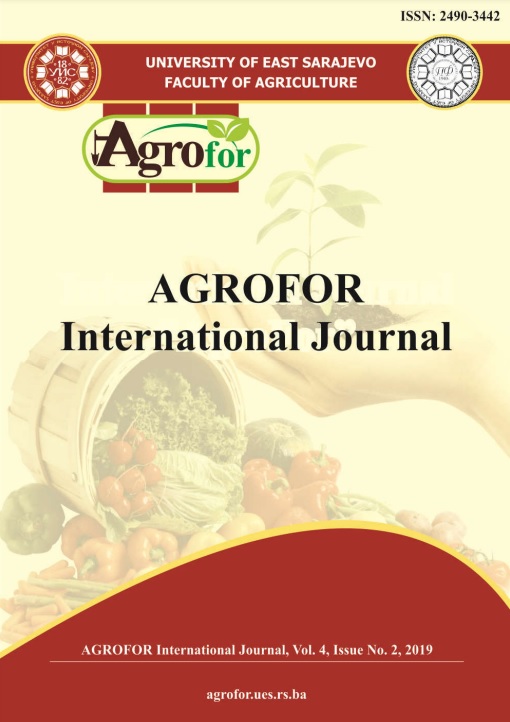THE INFLUENCE OF DIFFERENT PURITY OF NATURAL ALFALFA SEEDS ON THE PROCESSING EFFICIENCY
DOI:
https://doi.org/10.7251/AGRENG1902005DAbstract
This paper presents the results of the seed processing of ten lots of natural alfalfa seed with different purity (from 68.0% to 86.5%). The test was carried out at the seed processing center of the Institute for forage crops Kruševac-Serbia. Seed losses, processing output, seed yield and quality of the processed seed were investigated. It is important that the difference between the amounts of pure seed from laboratory assessment and the actual amount after processing, are low. The purity of natural alfalfa seed depends on the crop condition and the harvest process. In the seed processing of small-grained leguminous plants, the processing output of seed is directly dependent on the percentage of weed species and other species in the natural seed. Seeds of quarantine weeds of dodder and curly dock are a particularly big problem in alfalfa seeds. In the case of high-purity seeds with low quarantine weeds share, processing output are high. By the legal procedure on the seed quality, the content of pure seed, inert materials, weeds and other species in the processed seeds is defined. The efficiency of the alfalfa seed processing depends on the initial purity of the seed, as well as the applied technical and technological process of seed processing. Based on the obtained results, it is possible to optimally adjust and select the appropriate equipment for the processing of alfalfa seed, depending on the quantity and type of weeds and other ingredients in the natural alfalfa seeds.

